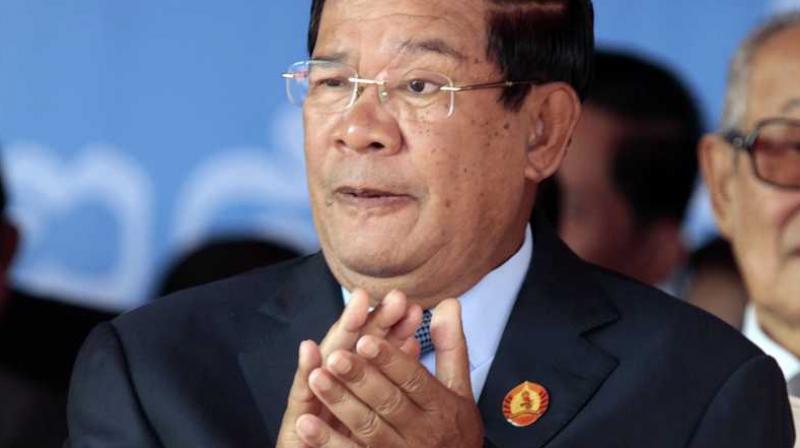Cambodia ruling party sweeps parliament after vote with no opposition
Cambodia's new government will be formed next month but problems of credibility could trail regime.

Phnom Penh: Cambodian leader Hun Sen has swept up all seats in parliament after holding an election with no opposition, as the country settles into one-party rule and a government that could face questions of legitimacy on the world stage.
The strongman has been in power for 33 years but the vote late last month was widely decried as a sham after a crackdown on the rival Cambodia National Rescue Party (CNRP), which was dissolved by the Supreme Court in November.
A spokesman for the National Election Committee told AFP Wednesday as official results were released that the ruling Cambodian People's Party (CPP) won all 125 seats up for grabs and took nearly 77 percent of the vote.
Cambodia's new government will be formed next month but problems of credibility could trail the regime as experts believe Hun Sen will try to bolster popular support at home.
"It's like pushing a cart uphill," said independent political analyst Meas Ny.
"From now on the new government will be under attack and defending itself."
The dissolved opposition said it would ramp up efforts to try to advocate with governments abroad.
"We will not abandon more than half of the country who voted for change but were excluded from exercising their choice," Mu Sochua, deputy CNRP leader, told AFP from self-exile.
The CPP pointed to 83 per cent voter turnout as evidence that a boycott by the opposition failed, but allegations of voter intimidation and some 600,000 spoiled ballots undermined the claims.
Hun Sen has held onto power for decades through a complex mix of development dollars and alliances in the police, army and courts.
The 66-year-old helped bring roads and mega-malls to a country ravaged by decades of civil war and the Khmer Rouge regime, which killed a quarter of the Cambodian population from 1975 to 1979.
A former commander in the group, he defected and was installed as prime minister in 1985 at the age of 32, later presenting himself as saviour while warning of conflict if his regime falls.
The message has resonated with segments of society.
"I don't care about having a one-party parliament. What I want is calm after the election," a tuk-tuk driver named Nhem Ry told AFP ahead of the results, which were in line with forecasts.
"We had demonstrations during previous elections which I do not like."
Western governments pulled funding for the vote and condemned it as not credible, but China, which has showered the country with loans and stayed silent on human rights issues, maintained support.
The CPP has long dominated Cambodia but the CNRP, which was founded in 2012, capitalised on discontent with corruption and inequality.
It earned 44 per cent of the vote in 2013 and took home a similar amount in local 2017 elections.
Analysts say the threat to Hun Sen prompted a rewind of democratic freedoms as civil society, NGOs and the press were squeezed in the run-up to this year's ballot.
Nineteen other political parties took part in the sixth national vote since UN-backed polls in 1993 but many are new or obscure and posed no challenge.
John Cavanaugh, who was serving as Cambodia country director for the National Democratic Institute when Hun Sen expelled the group during the sweeping crackdown last year, told AFP that authoritarian regimes often get tough on dissent before voting.
"But rarely to the degree and with the focused intensity (of) the Cambodian government's methodical campaign to entirely shut-down the space for true democratic participation, and unfortunately move the country towards outright dictatorship."

